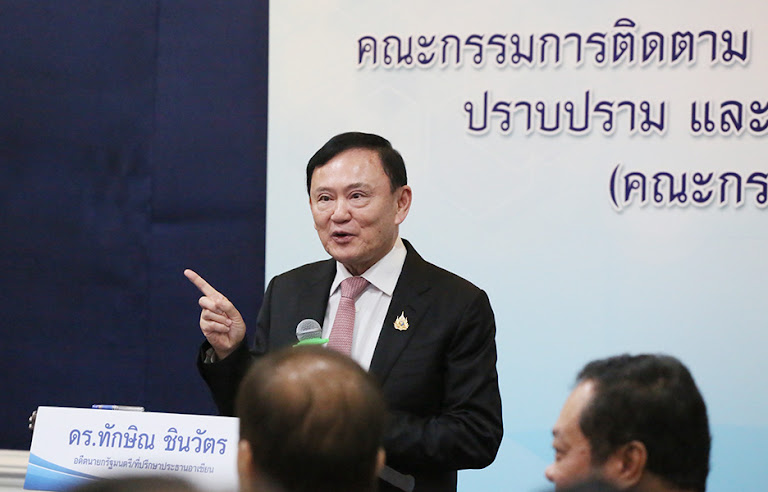Thaksin Vows Thailand Drug War, Targets Myanmar’s Red Wa.
Echoing his 2003 policies, Thaksin proposes aggressive tactics against Myanmar’s Red Wa Army and reallocating digital wallet funds for the drug war.

Thaksin Shinawatra, the former Prime Minister of Thailand, is back in the spotlight, this time advocating for a dramatically escalated approach to the country’s drug crisis. Invited by the Office of the Narcotics Control Board (ONCB), Thaksin’s recent pronouncements, captured in these recent findings, frame anyone involved in narcotics as “an enemy of Thailand” deserving of ruthless treatment. This echoes his controversial 2003 “war on drugs,” a campaign lauded by some for its perceived effectiveness but condemned by human rights groups for its brutal excesses, including over 1,400 extrajudicial killings. The return to this kind of rhetoric raises serious questions about the efficacy and ethical implications of prioritizing a heavy-handed response over a more nuanced, systemic approach.
The current situation is undeniably pressing. Thaksin points to a dramatic shift in the source of drug production, highlighting that virtually all narcotics now originate from the Red Wa region in Myanmar’s Shan State. This externalization of the problem, he argues, demands a new strategy, one focused on cutting off the supply at its source. His proposals include leveraging diplomatic relationships with neighboring countries, potentially even seeking permission to take direct action against the Red Wa Army if Myanmar is unable to control it. This aggressive stance, while perhaps appealing in its decisiveness, risks further destabilizing an already fragile region and could trigger unforeseen geopolitical consequences.
However, Thaksin’s analysis also touches on a crucial point: the internal weaknesses of Thailand’s anti-drug infrastructure.
- The fragmentation of responsibility, with 29 agencies currently involved, creates obvious coordination challenges.
- Significant gaps in container inspection capabilities allow vast quantities of drugs to slip through customs.
- The lack of community involvement and the need for better cooperation between police and local administration officials are also highlighted.
These systemic issues suggest that a solely external focus, even if successful in curbing drug production in Myanmar, might merely shift the problem elsewhere. Without addressing the internal vulnerabilities, Thailand will remain susceptible to drug trafficking and abuse.
The proposal to reallocate funds from the 157 billion baht digital wallet scheme to fight the drug war is a revealing insight into the potential for policy trade-offs and the challenge of prioritization within government spending. Is this a rational redistribution of resources given what Thaksin and others describe as the scale of the crisis, or simply opportunistic politics?
“Today, anyone involved with drugs is an enemy of Thailand.”
This stark declaration encapsulates the inherent dangers of reducing complex societal problems to simplistic binaries. While the desire for decisive action is understandable, history teaches us that such uncompromising approaches often lead to unintended consequences, including the erosion of civil liberties and the disproportionate targeting of vulnerable populations.
Moreover, the suggestion to cut electricity and communications to drug operations using Thai infrastructure and to consider anyone refusing to cooperate “an adversary to their own country” walks a dangerous line between necessary enforcement and authoritarian overreach. Such measures, if implemented without careful oversight and due process, could easily be abused and used to silence dissent.
Ultimately, Thaksin’s call for a renewed war on drugs raises fundamental questions about the balance between security and liberty, the role of international cooperation, and the need for comprehensive, evidence-based solutions. While the urgency of the drug crisis is undeniable, resorting to the tactics of the past without addressing the underlying systemic weaknesses risks repeating past mistakes and perpetuating a cycle of violence and instability. A truly effective strategy requires not just a willingness to confront external threats but also a commitment to strengthening internal institutions, promoting community engagement, and upholding the rule of law.









